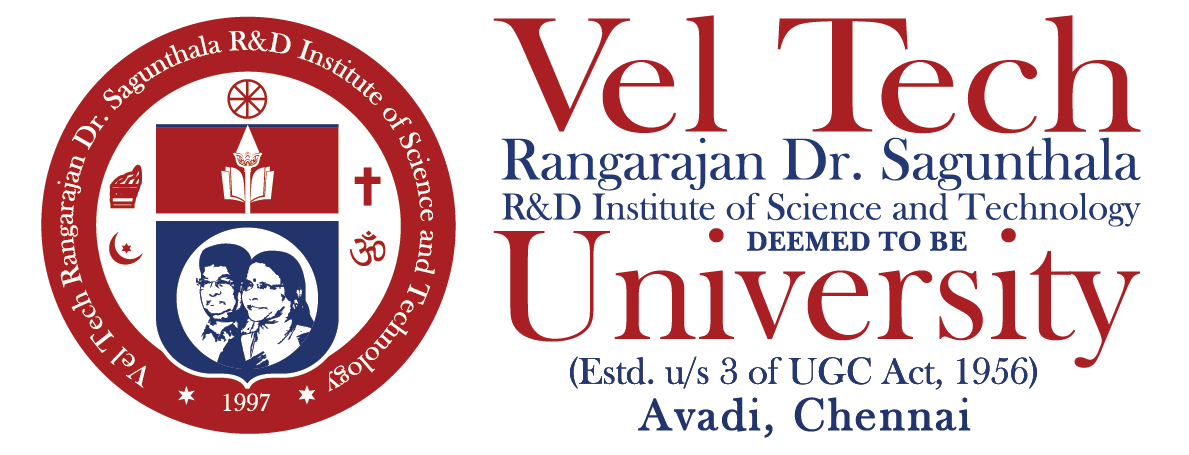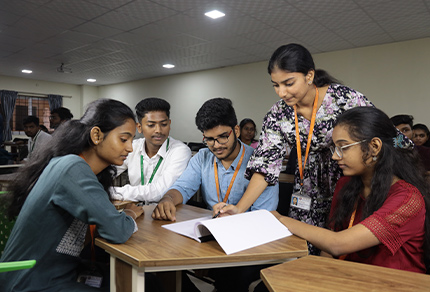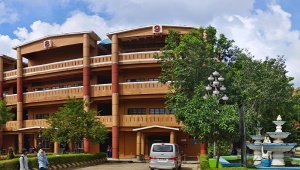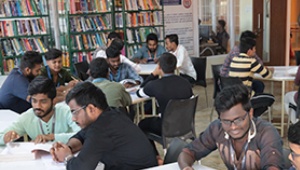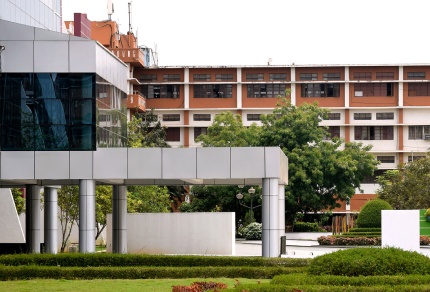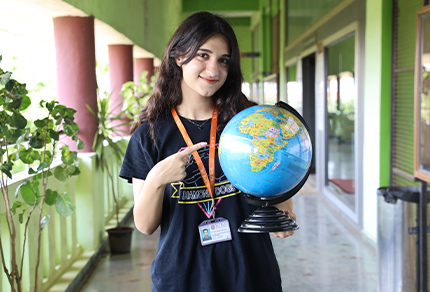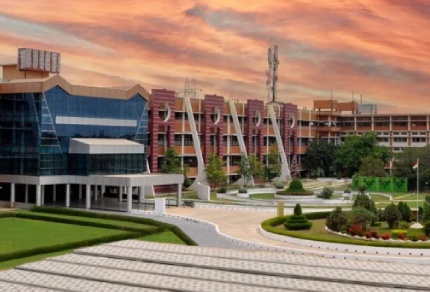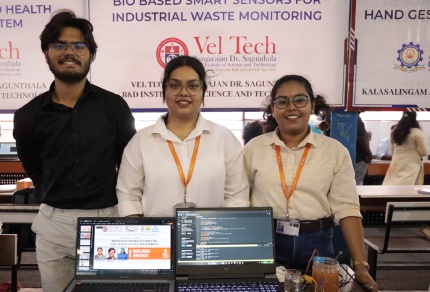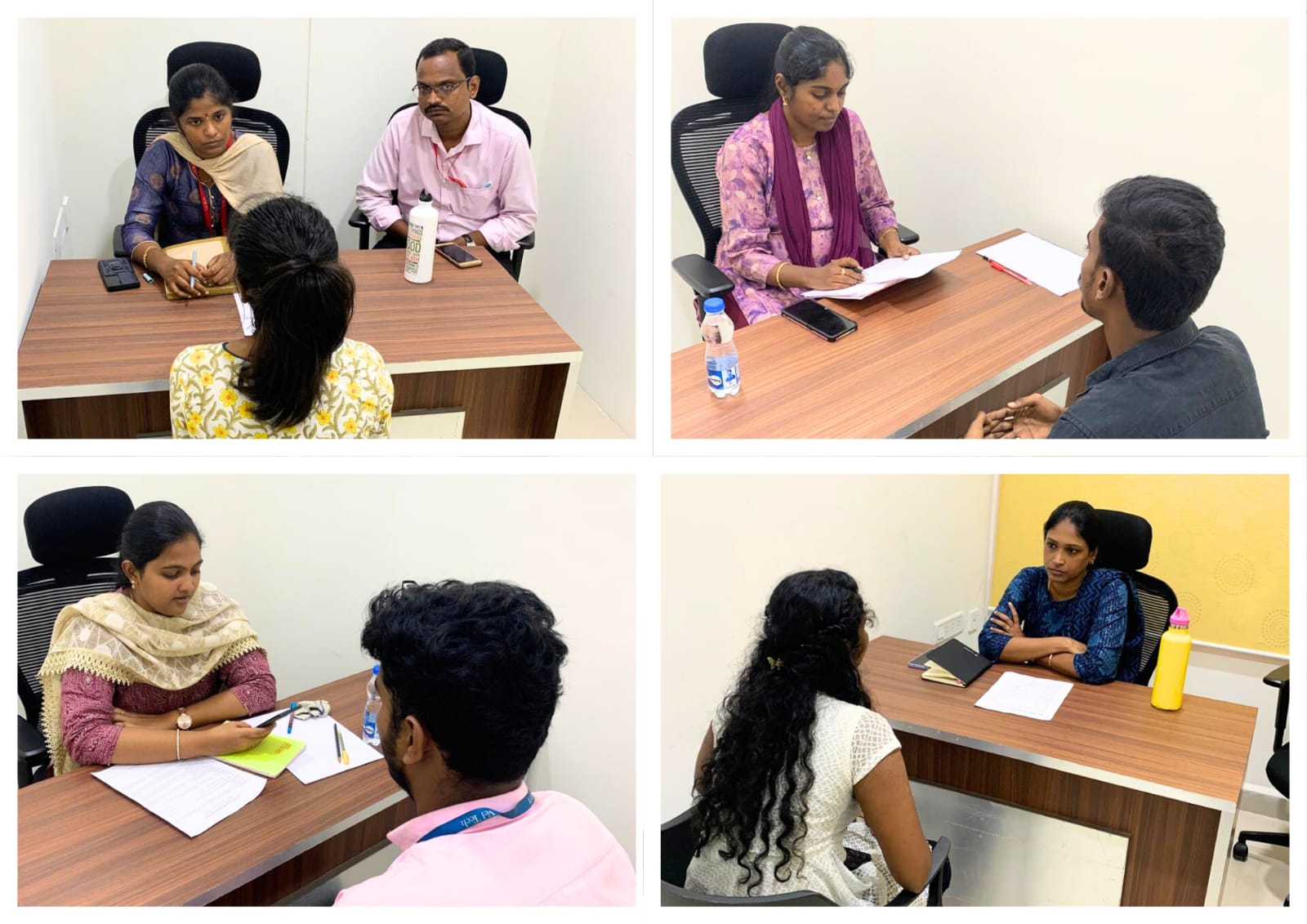Department of Computer Science & Engineering
ABET- EAC AND CAC STUDENT OUTCOMES
At the time of the graduation, B.Tech. CSE program Students are expected to know and be able to do the following ABET-EAC and ABET-CAC Student Outcomes that relate to knowledge, skills and behavior of the students.
ABET-EAC Student Outcomes
- An ability to identify, formulate, and solve complex engineering problems by applying principles of engineering, science, and mathematics.
- An ability to apply engineering design to produce solutions that meet specified needs with consideration of public health, safety, and welfare, as well as global, cultural, social, environmental, and economic factors.
- An ability to communicate effectively with a range of audiences.
- An ability to recognize ethical and professional responsibilities in engineering situations and make informed judgments, which must consider the impact of engineering solutions in global, economic, environmental, and societal contexts.
- An ability to function effectively on a team whose members together provide leadership, create a collaborative and inclusive environment, establish goals, plan tasks, and meet objectives.
- An ability to develop and conduct appropriate experimentation, analyze and interpret data, and use engineering judgment to draw conclusions.
- An ability to acquire and apply new knowledge as needed, using appropriate learning strategies.
ABET-CAC Student Outcomes
- Analyze a complex computing problem and to apply principles of computing and other relevant disciplines to identify solutions.
- Design, implement, and evaluate a computing-based solution to meet a given set of computing requirements in the context of the program’s discipline.
- Communicate effectively in a variety of professional contexts.
- Recognize professional responsibilities and make informed judgments in computing practice based on legal and ethical principles.
- Function effectively as a member or leader of a team engaged in activities appropriate to the program’s discipline.
- Apply computer science theory and software development fundamentals to produce computing-based solutions.
PROFILE
Department of Computer Science & Engineering offers a wide range of activities in Cloud computing, Bio-informatics, Networking, Data Mining, Text Mining, Cyber Security, Big Data Analytics, Machine Learning & Internet of Things. Sixty-three doctoral students are currently pursuing Research in the above-listed areas. Activities in Cloud Computing Research outcomes are presented/published in national/ international conferences/ journals.
All programmes are approved by AICTE || B.Tech. programme is accredited by NBA under Tier-I (Washington Accord) category.
UG Programmes
B.Tech. Computer Science & Engineering
Specialization / Minor / Honors in
- Artificial Intelligence
- Data Science
- Cyber Security
- Artificial Intelligence & Machine Learning
- Artificial Intelligence & Data Science
- Artificial Intelligence & Robotics
- Financial Technology
- Gaming and Animation
PG Programmes
- M.Tech. – Computer Science and Engineering
- M.Tech. – Network Engineering
- M.Tech. – Big Data Analytics
- M.Sc. – Data Analytics
Ph.D Programmes
- Ph.D. – Computer Science & Engineering
Program Curriculam Structure
STATE OF THE ART FACILITY
The Infrastructure is well orchestrated, facilitating students to enhance their Technical Knowledge, Research oriented initiatives and upgrade their skills in accord to Industrial requirement.
National Industry/Research Institute interaction
- Centre for Development of Advanced Computing (C-DAC)
- CMC Limited
- IBM
- ITI Limited
- Modern Communication and Broadcast System Pvt. Lt. (MCBS) & NICIT
- Tata Consultancy Services (TCS)
- CSC
- EMC2
- Infosys Technologies
- National Informatics Centre
- Telecom Sector Skills Council (TSSC)
National Industry/Research Institute interaction
- Nagoya Institute of Technology, Japan
- New Jersey Institute of Technology, USA
- Oklahoma State University, Still Water, USA
- University of Leicester, UK
Laboratories
- Data Structures Laboratory
- Java Programming Laboratory
- Database Management System Laboratory
- Operating Systems Laboratory
- Computer Networks Laboratory M.Tech Network Engineering
- Networking Laboratory
- Network Simulation Laboratory
Placements
Research labs
- C – DAC Advanced Computing
- DST E – Waste Management
- IBM Cyber Security
Faculty Members
Stakeholder Report
Academic Year(2024-2025)
- Employer Feedback on Curriculum
- Industry Feedback on Curriculum
- Faculty Feedback on Curriculum
- Student Feedback on Curriculum
- Action Feedback on Curriculum
Academic Year(2023-2024)
Vision
To produce intellectual graduates who could contribute significantly in the analysis, design, development, operation and maintenance of complex software systems for meeting the ever changing requirements of service systems and to compete globally towards professional excellence.
Mission
- M1: Design curricula for imparting training in adapting newer computing methods and technologies for providing effective and efficient solutions to the existing / new problems.
- M2: Emphasizing in-depth knowledge of the subjects by employing Information and Communication Technology (ICT) based pedagogy methods.
- M3: Creating a conducive research environment for making technological innovations by the faculty and students.
- M4: Providing leadership skills and professional ethics thereby making a prolific career in academics and industry.
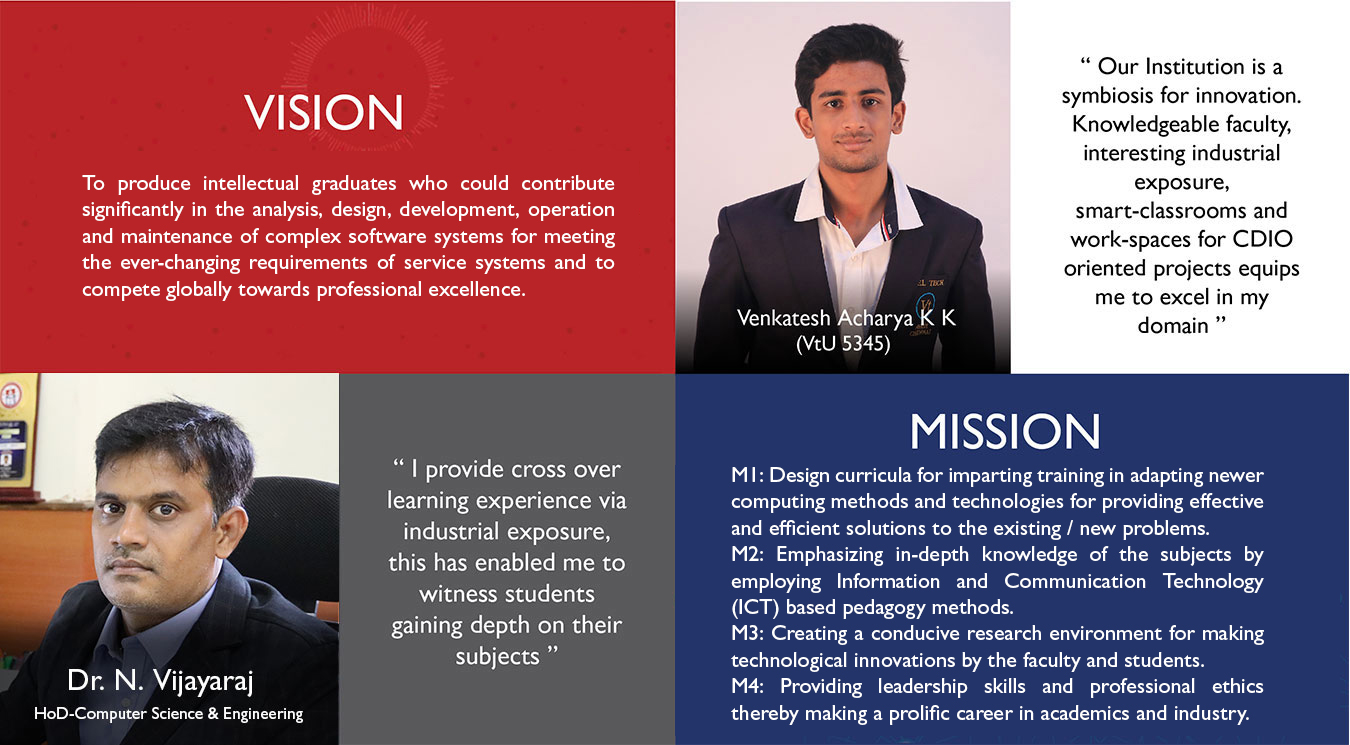
PEDAGOGY
The programme curriculum has been devised to cater to the continually changing Technologies of IT Industry. The Department was appreciated by the CSIR for the students’ contribution towards the e-Governance Projects. The Department has established a Cyber Security in association with IBM India Pvt. Ltd., Students of this Department are undertaking advanced courses offered by CISCO, Microsoft, RedHat, IBM and EMC2. Students are well placed in the top MNCs such as TCS, Wipro, CTS, IBM, Infosys, HCL, Hexaware, Tech Mahindra, Steria etc., Students were selected for Internships at CSC, Mahindra EPC, CSIR, TCOE, HP etc., Innovative Ideas of the students won many awards such as Microsoft Imagine Cup.
Programme Educational Objectives
- PEO1: Formulate, solve and analyze Computer Science and Engineering problems using necessary mathematical, scientific and engineering fundamentals.
- PEO2: Demonstrate the impact of cutting-edge technologies to accomplish social and professional responsibilities.
- PEO3: Demonstrate critical thinking, communication, teamwork, leadership skills and ethical behavior necessary to function productively and professionally.
- PEO4: Pursue higher education at reputed institutions in India and abroad, work in product development companies, and engage in lifelong learning.
Program Outcomes (POs)
- PO1: Engineering Knowledge: Apply knowledge of mathematics, natural science, computing, engineering fundamentals and an engineering specialization as specified in WK1 to WK4 respectively to develop solutions for complex engineering problems.
- PO2: Problem Analysis: Identify, formulate, review research literature and analyze complex engineering problems reaching substantiated conclusions with consideration for sustainable development. (WK1 to WK4)
- PO3: Design/Development of Solutions: Design creative solutions for complex engineering problems and design/develop systems, components, and processes to meet identified needs with consideration for public health and safety, whole-life cost, net zero carbon, culture, society, and environment as required. (WK5)
- PO4: Conduct Investigations of Complex Problems: Conduct investigations of complex engineering problems using research-based knowledge including design of experiments, modelling, analysis, and interpretation of data to provide valid conclusions. (WK8)
- PO5: Engineering Tool Usage: Create, select and apply appropriate techniques, resources, and modern engineering & IT tools, including prediction and modelling, recognizing their limitations to solve complex engineering problems. (WK2 and WK6)
- PO6: The Engineer and The World: Analyze and evaluate societal and environmental aspects while solving complex engineering problems for their impact on sustainability with reference to economy, health, safety, legal framework, culture and environment. (WK1, WK5, and WK7)
- PO7: Ethics: Apply ethical principles and commit to professional ethics, human values, diversity and inclusion; adhere to national and international laws. (WK9)
- PO8: Individual and Collaborative Team Work: Function effectively as an individual, and as a member or leader in diverse/multidisciplinary teams.
- PO9: Communication: Communicate effectively and inclusively within the engineering community and society at large, such as being able to comprehend and write effective reports and design documentation, and make effective presentations considering cultural, language, and learning differences.
- PO10: Project Management and Finance: Apply knowledge and understanding of engineering management principles and economic decision-making to one’s own work, as a member and leader in a team, and manage projects in multidisciplinary environments.
- PO11: Life-Long Learning: Recognize the need for and have the preparation and ability for (i) independent and life-long learning, (ii) adaptability to new and emerging technologies, and (iii) critical thinking in the broadest context of technological change. (WK8)
Program Specific Outcomes of
- PSO1: Mathematical Concepts: Equipped with the knowledge to infer the mathematical models for problem solving using data structures, design and analysis of algorithms.
- PSO2: Software Development: Exhibit proficiency to analyze, design and develop applications in various domains to provide solutions using innovative ideas.
- PSO3: Transferring Skills: Demonstrate the ability to provide solutions for real world problems through acquaintance and hands-on training.
Research areas
- Artificial Intelligence
- Cloud Computing
- Data Mining
- E – Waste Management
- Information & Network Security
- Internet Technology
- Image Processing
- Mobile Computing
- Pattern Recognition
- Wireless Sensor Networks
